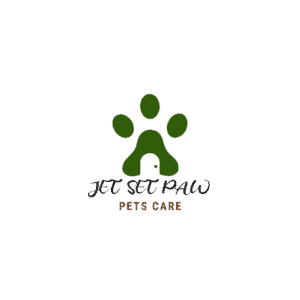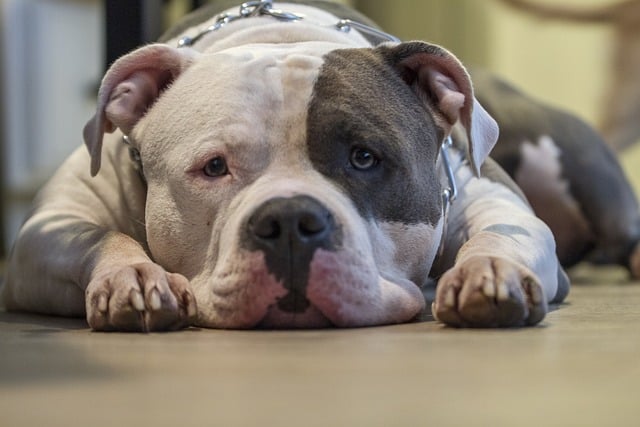Pit bulls are a popular and often misunderstood dog breed that encompasses several breeds such as the American Pit Bull Terrier, American Staffordshire Terrier, and Staffordshire Bull Terrier.
While these dogs have an unfortunate reputation among some, they can make wonderful family companions with proper training, socialization, and care.
One important aspect of caring for a pit bull is providing them with proper nutrition. The right diet is crucial for these energetic dogs to thrive and stay healthy.
Like any dog, pit bulls have unique nutritional needs based on their breed size, energy levels, and sensitivities.
In this article, we will provide an overview of pit bull nutrition including recommended ingredients, diet considerations for puppies and adults, and reviews of some top-rated dog foods for the pit bull breed.
Proper nutrition provides the fuel for pit bulls to reach their full potential while avoiding health problems caused by poor diet.
Taking the time to learn about pit bull dietary requirements will ensure your dog lives a long, active, and happy life.
Pit Bull Breed History
The Pit Bull is a popular breed that originates from crossing bulldogs with terriers. Historically, these dogs were bred for the cruel practice of bull-baiting, where dogs were trained to attack chained bulls.
Once bull-baiting was banned in the 1800s, Pit Bulls were then used for dog fighting and as catch dogs in America for semi-wild cattle and hogs.
Despite their unfortunate history, Pit Bulls became family companions, appreciated for their intelligence, athleticism, and loyalty to their owners.
Pit Bull is now an umbrella term for several breeds including the American Pit Bull Terrier, American Staffordshire Terrier, American Bully, and Staffordshire Bull Terrier.
While they have a controversial reputation, Pit Bulls raised responsibly in loving homes make excellent canine citizens and are one of the most popular breeds adopted from shelters in the United States.
Pit Bull Size and Growth
Pit Bulls are typically medium-sized dogs, ranging from 30-50 pounds in adult weight. They are quite muscular and stocky dogs, built for power and athleticism.
Pit Bull puppies experience very rapid growth in their first year. They can gain 2-3 pounds per week between 3-6 months of age as they bulk up.
Proper nutrition is extremely important during this growth phase to support muscle and joint development.
Excessive calcium or calorie intake can be detrimental, causing developmental orthopedic diseases. Failure to meet nutritional demands will also stunt growth.
Most Pit Bulls will reach their full adult size between 12-18 months old. Male Pit Bulls tend to be 18-21 inches tall at the shoulder; females are 17-20 inches tall.
Monitoring your Pit Bull puppy’s growth rate and body condition score allows you to adjust feeding as needed to keep them in optimal shape.
Pit Bull Energy and Exercise Needs
Pit Bulls are extremely energetic dogs that require a lot of regular intense exercise and stimulation.
This is a very active and athletic breed that needs an outlet for their energy each day, or they can become bored, frustrated, and even destructive.
A Pit Bull that does not get enough exercise is more likely to develop behavioral issues like aggression, anxiety, excessive barking, chewing, digging, hyperactivity, and more.
Their energy needs to be channeled into positive outlets. Pit Bulls thrive when they have an active owner who can provide vigorous daily exercise and interactive playtime.
Pit Bulls require a minimum of 60 minutes of high-intensity exercise every day. However, most Pit Bulls prefer even more physical activity than this.
Activities like long runs, hiking, swimming, playing fetch, agility training, or jogging alongside a bicycle help fulfill their exercise requirements.
Pit Bulls enjoy having a job to do and appreciate canine sports such as dock diving, flyball, weight pulling, or Frisbee catching competitions.
Mental stimulation is also important for Pit Bulls to prevent boredom. Food puzzle toys, obedience training, scent games, and learning new tricks are great ways to engage their minds.
Ensuring your Pit Bull gets sufficient physical exercise and mental enrichment will result in a happy, well-adjusted dog.
An exhausted dog is a well-behaved dog when it comes to this energetic breed. Pit Bull owners must be ready to provide their dogs with the high level of activity they crave every day.
Pit Bull Dietary Needs
Pit Bulls are a muscular breed that needs a high-protein diet to maintain their physique and energy levels.
Their food should contain at least 25-30% protein from high-quality animal-based sources like chicken, beef, fish, eggs, etc. Avoid fillers like corn, wheat, and soy which can trigger allergies.
Since Pit Bulls are prone to food allergies, it’s best to steer clear of common irritants like beef, dairy, chicken, and eggs. Novel proteins like bison, venison, lamb, or duck can make good substitutes.
Supplements like glucosamine, chondroitin, and fish oil can provide added joint, skin, coat, and cognitive health benefits. But they shouldn’t replace high-quality protein sources.
Antioxidants from fruits, vegetables, and oils support their immune system. Taurine is an amino acid that Pit Bulls cannot synthesize, so their food must contain it.
Ultimately, the ideal Pit Bull diet is high in protein, free of fillers, and contains supplements to support their unique needs. Stick to quality ingredients from reputable brands recommended for highly active, muscular dogs.
Recommended Ingredients
When selecting a portion of dog food for your Pit Bull, pay close attention to the first 5 ingredients listed. The first ingredients should be high-quality sources of protein like meat, chicken, or fish.
Meat such as beef, lamb, or bison provides lean protein to help build and maintain your Pit Bull’s muscles. Look for whole, named meats rather than broths or by-products.
Chicken is another excellent source of protein for Pit Bulls. Chicken meal is concentrated chicken with moisture removed, making it more energy-dense than fresh chicken.
Fish ingredients like salmon or sardines are also great options. Fish provides omega-3 fatty acids to support your Pit Bull’s skin and coat health.
Grains like corn, wheat, or soy are common allergens for Pit Bulls. It’s best to avoid dog foods containing these ingredients. Instead, look for whole grains like brown rice, barley, or oatmeal.
Pit Bulls are carnivores at heart, so their food should always feature an identified meat, poultry, or fish as the first ingredient. This ensures your dog gets lots of bioavailable protein to meet their unique nutritional needs.
Pit Bull Allergies
Pit Bulls are prone to developing food allergies and intolerances, especially as they age. Some of the most common allergens for the breed include beef, dairy, chicken, lamb, fish, wheat, corn, and soy.
Food allergies in Pit Bulls can lead to itchy skin, chronic ear infections, hair loss, hot spots, vomiting, and diarrhea.
To prevent allergic reactions, it’s best to feed your Pit Bull dog food with novel protein sources. Novel proteins are those that are less common and that your dog has likely not been exposed to before, such as bison, venison, duck, rabbit, kangaroo, or lamb.
Rotating between a couple of different proteins can help prevent the development of new allergies over time.
Grain-free and limited-ingredient dog foods are ideal for Pit Bulls with food sensitivities, as they contain fewer ingredients overall.
Look for a formula with a single novel protein source and carbohydrates like sweet potatoes, peas, or tapioca.
Avoid dog foods with fillers like corn, wheat, soy, eggs, and chicken. Checking the ingredients list for any food you feed your Pit Bull is important to avoid triggering an allergic response.
Best Foods for Pit Bull Puppies
Pitbull puppies grow very quickly in their first year and require a high-calorie diet with plenty of protein and fat for proper development.
As a medium-large breed, most experts recommend feeding pitbull puppies a large breed puppy food formula specifically tailored for their growth needs.
Look for a puppy food that contains at least 22% protein and 8% fat from high-quality animal sources. This provides the right balance of amino acids and calories for lean muscle mass growth.
Avoid formulas with excess fillers or carbohydrates, as pit bulls are prone to becoming overweight later in life.
Some top-rated puppy foods for pit bulls include:
– Taste of the Wild High Prairie Puppy Formula – Features bison and buffalo as the main proteins, with sweet potatoes and peas for carbohydrate energy. Contains 28% protein, 17% fat.
– Purina Pro Plan Focus Large Breed Puppy – Chicken is the first ingredient, with rice and oatmeal for fiber. Has 28% protein, 13% fat.
– Diamond Naturals Large Breed Puppy – Formulated with lamb, eggs, and real fruits and veggies. Provides 27% protein, and 17% fat.
– Merrick Backcountry Large Breed Puppy – Uses deboned chicken, turkey, salmon, and eggs as main proteins. Has 30% protein, 16% fat.
No matter what brand you choose, be sure to follow the feeding guidelines for proper amounts based on your puppy’s current weight and activity level. Adjust as needed to maintain an ideal weight and body condition.
Best Foods for Adult Pit Bulls
As adult dogs, Pit Bulls require a high-protein, grain-free, meat-based diet to stay healthy and energetic. Look for dog foods with at least 25-30% protein from quality animal sources as the first ingredients.
Some top foods for adult Pit Bulls include:
– Taste of the Wild High Prairie Formula: This grain-free dry dog food features buffalo, lamb meal, beef, and venison as the top ingredients.
It provides 28% protein and is made without corn, wheat, filler, artificial flavors, colors, or preservatives.
– Merrick Grain Free Real Texas Beef + Sweet Potato Recipe: With 30% protein from deboned beef, this formula offers natural glucosamine and chondroitin for joint health. It contains no grains, gluten, fillers, or artificial preservatives.
– Blue Buffalo Wilderness High Protein Grain Free: Chicken and chicken meal provide 30% protein in this formula.
It also contains omega 3 & 6 fatty acids to promote skin and coat health. There are no by-product meals, corn, wheat, soy, or artificial preservatives.
– Wellness Core Original Turkey & Chicken: This grain-free food has 34% protein from turkey and chicken meal.
It is all-natural with no meat by-products, wheat, corn, soy, artificial colors, flavors, or preservatives. Antioxidants support an optimal immune system.
– Nature’s Logic Canine Chicken Meal Feast: The top ingredient is chicken meal in this gluten-free, grain-free formula.
It contains pumpkin seeds and cranberries for antioxidants and 34% protein. There are no artificial ingredients or synthetic supplements.
Be sure to transition any changes in the diet gradually and provide plenty of fresh water. Choosing the right high-protein, meat-based food will help keep your adult Pit Bull energetic and healthy.
Conclusion
Providing proper nutrition for your Pit Bull is extremely important to support their health and wellbeing.
The Pit Bull is a high-energy breed that requires a high-quality diet to fuel their active lifestyle and build lean muscle.
As we’ve discussed, Pit Bulls have some unique dietary needs due to their breed history and genetic makeup.
They require high amounts of protein to support their muscular frames and healthy animal-based fats for energy and joint health. Their diets should contain digestible carbohydrates like sweet potatoes rather than fillers.
It’s also essential to feed your Pit Bull puppy a formula specially designed for large breed growth, to prevent developmental issues.
Adult Pit Bulls benefit from recipes tailored for highly active, muscular dogs. Ensure the diet is free from common allergens like corn, wheat, and soy.
By selecting a premium dog food that aligns with your Pit Bull’s life stage and activity level, you can provide the tailored nutrition they need to thrive.
Follow the recommendations in this guide to choose the best diet for your Pit Bull’s needs. With proper nutrition, your loyal companion will remain happy and healthy for years to come.

